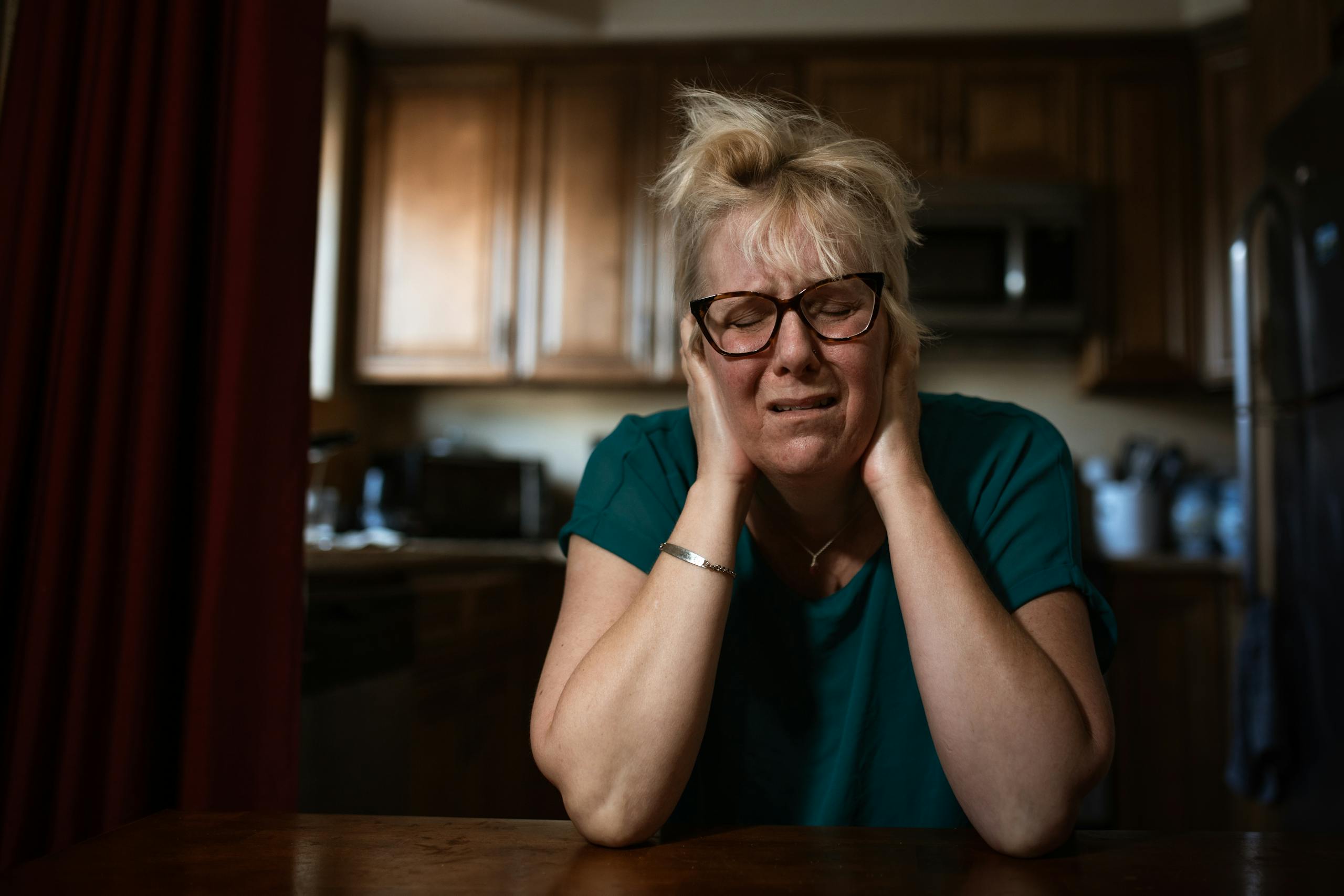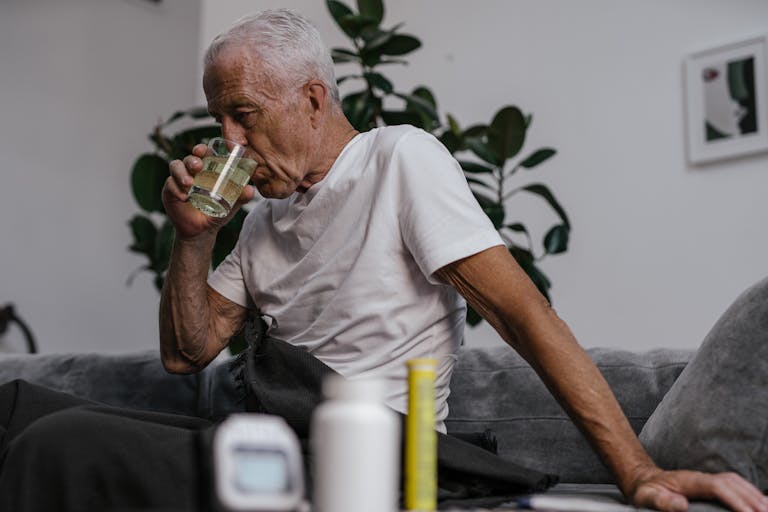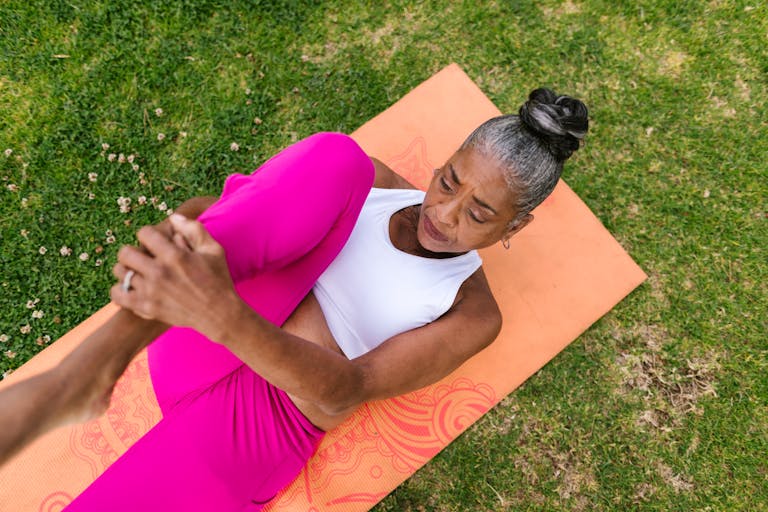Mental Health’s Impact on Biological Aging
Have you ever looked in the mirror after a particularly rough and stressful week and thought, “Wow, I look older”? While it might feel like an exaggeration. It’s not just your imagination.
Science is now uncovering some fascinating links between our emotional well-being and the speed at which our bodies show the passage of time.
Science is proving that our mental health can leave a lasting mark on how we age—both inside and out.
Our mental health doesn’t just shape how we think and feel—it leaves a profound imprint on how our bodies age thus speed up the aging process at a cellular level.
From chronic stress accelerating cellular aging to depression affecting immune function, the connection between mental well-being and biological aging is undeniable.
So in this post, we’re diving into Mental Health’s Impact on Biological Aging. We will be looking at the hidden connection between mental health and biological aging—and more importantly, how we can slow down that aging clock.
We’ll also explore the fascinating interplay between the mind and body, revealing how our emotional state can influence everything from wrinkles to the health of our very DNA.
So continue reading as we uncover practical tips to nurture our body and mental health incorporating some self-care and mental health strategies. Let’s delve in.
The Mind-Body Connection: How Mental Health Impacts Aging
It’s no secret that our mental health and physical well-being are deeply intertwined. When we’re stressed, our bodies react by releasing cortisol, often called the “stress hormone.
While cortisol is helpful in short bursts—think “fight or flight” situations—chronic stress can flood our systems with this hormone, leading to inflammation, disrupted sleep, and even damage to our DNA over time.
Studies have shown that individuals experiencing chronic stress, depression, or anxiety often exhibit shorter telomeres.
Telomeres are protective caps at the ends of our chromosomes, kind of like the plastic tips on shoelaces.
When telomeres shorten, our cells lose their ability to function properly, and this is directly linked to aging and age-related diseases.
In other words, mental health challenges can literally age you at the cellular level.
Visible Signs of Mental Health’s Toll on Aging
Ever notice how people under constant stress often look older than they are? That’s because mental health doesn’t just affect what’s happening inside our bodies.
It shows up on the outside too. Chronic stress and poor mental health can lead to:
1. Premature wrinkles and fine lines
Due to collagen breakdown caused by prolonged stress. When cortisol levels remain elevated, the skin’s ability to repair itself diminishes.
This leads to reduced elasticity, dryness, and the early formation of wrinkles.
Over time, this damage becomes more pronounced, especially around areas of high movement like the eyes and mouth.
2. Hair thinning or graying
Stress affects the hair’s natural growth cycle. When under pressure, the body may push hair follicles into a resting phase, leading to excessive shedding or hair loss.
Chronic stress has also been linked to oxidative stress, which can affect pigment production in hair, leading to premature graying.
3. Skin Issues
Skin issues like dullness, acne, or redness as a result of inflammation. Stress triggers an increase in inflammatory markers, which can exacerbate conditions such as eczema, psoriasis, and acne.
Additionally, when we’re mentally overwhelmed, we’re less likely to maintain consistent skincare routines, which can compound these issues.
Mental health also impacts lifestyle choices that influence aging. For instance, people struggling with depression may find it harder to maintain a healthy diet, exercise regularly, or get enough sleep—all of which play key roles in how we age.
How You Can Slow the Clock
Here’s the uplifting part: You’re not powerless against the effects of mental health on aging.
By taking steps to nurture your mental well-being, you can protect your body and mind from premature aging. Here are some practical tips to get started:
1. Practice Stress Management
Stress management isn’t just a buzzword; it’s a crucial skill for preserving both mental and physical health.
Techniques like meditation and deep breathing can lower cortisol levels and create a sense of calm. Mindfulness practices, where you focus on the present moment without judgment, can also reduce the mental clutter that contributes to stress.
Even small steps, like taking a walk in nature or journaling your thoughts, can make a significant difference over time.
2. Prioritize Sleep
Sleep is the foundation of physical and mental rejuvenation. When you sleep, your body undergoes essential repair processes, from cellular regeneration to hormone balancing.
Chronic sleep deprivation disrupts these processes and accelerates aging. To enhance sleep quality, create a consistent bedtime routine, limit screen time before bed, and consider relaxing activities like reading or listening to calming music.
3. Stay Active
Exercise isn’t just about staying fit; it’s a powerful anti-aging tool. Physical activity improves circulation, which nourishes skin cells and promotes a healthy complexion.
Exercise also stimulates the production of endorphins, the body’s natural mood boosters, and reduces levels of stress hormones.
Aim for a mix of aerobic exercises like walking or cycling and strength training to maintain muscle tone and bone density as you age.
4. Connect with Others
Humans are inherently social creatures, and meaningful connections play a pivotal role in mental health. Loneliness and social isolation have been linked to increased levels of stress and inflammation.
Make time to nurture relationships with friends and family, join community groups, or engage in activities that align with your interests.
Building a strong support network can act as a buffer against the challenges of life and keep you emotionally resilient.
5. Seek Professional Support When Needed
There’s no shame in seeking help from a mental health professional.
Therapists and counselors can provide tools to cope with stress, reframe negative thought patterns, and develop healthier habits.
If stress or anxiety feels overwhelming, a professional can guide you toward effective solutions, including cognitive-behavioral therapy (CBT) or other evidence-based treatments.
Final Thoughts
Aging is a natural part of life, but how we age is something we can influence.
By prioritizing mental health, we’re not just improving how we feel day-to-day—we’re investing in our long-term physical health and longevity.
So, the next time life feels overwhelming, remember: taking care of your mental health is one of the most powerful tools you have to age gracefully and vibrantly.
Your mind and body are a team, and they work best when they’re in harmony.
Let’s give them the care and attention they deserve—after all, a happier mind means a healthier, more youthful you.







